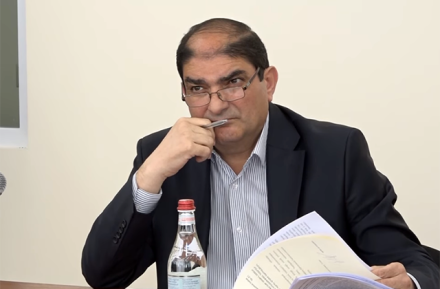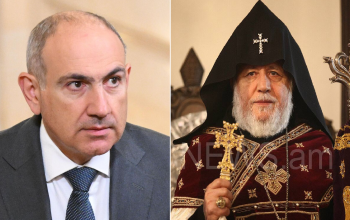By Stepan Stepanian
Under Prime Minister Nikol Pashinyan’s administration, allegations of judicial corruption have increasingly undermined public confidence in Armenia’s rule of law. Authoritative analyses—including Transparency International’s 2023 report on judicial independence and assessments by the European Commission—highlight a disturbing trend: a judiciary that is frequently manipulated by political forces to serve partisan interests rather than to uphold impartial justice. Critics argue that selective judicial actions have consistently been used to target political dissent, contributing to a system where justice is administered on a case-by-case basis rather than by objective legal principles.
Across the country, several cases have emerged in which judges have approved arrest warrants and rulings that conveniently align with the ruling party’s political agenda. In these instances, the judiciary appears less an independent branch of government and more a tool of political repression. Such practices have not only eroded the integrity of the justice system but have also raised concerns among international observers and local reform advocates alike, who warn that without substantial reforms, the long-term prospects for an impartial legal system in Armenia remain bleak.
A particularly stark example of this phenomenon is the case of Judge Artush Gabrielyan. Known for his role in sanctioning the arrests of opposition figures, Gabrielyan has long been emblematic of judicial malfeasance in the country. His corruption has become so blatant that even his allies in the Civil Contract party are now compelled to take notice. Critics point out that his actions—once overlooked as politically expedient—have reached a level where the very mechanics of accountability are being subverted. By deliberately relying on the Supreme Judicial Council (SJC) to withhold permission to indict him, the government effectively renders any legal action against him a mere performance, lacking genuine punitive intent. In this way, the process serves as a calculated political theater rather than a true effort to address corruption.
Moreover, the accusations against Gabrielyan extend far beyond his judicial rulings. He is now under investigation for accumulating vast personal wealth through reportedly illicit means—a case that has prompted the Anti-Corruption Committee (ACC) to seek the confiscation of five properties, four vehicles, and over 63 million drams in cash. Such actions are widely seen as emblematic of how endemic corruption can permeate even the highest echelons of Armenia’s judiciary. These developments have forced a reckoning within the government: instead of a vigorous accountability drive, the ensuing legal maneuvers risk devolving into a performative act, underscoring the administration’s unwillingness to confront the systemic corruption that has long afflicted its institutions.
In the broader context, the Gabrielyan affair crystallizes a central contradiction of Pashinyan’s tenure. Despite the administration’s public commitments to reform and transparency, the judicial system remains mired in practices that protect political allies and suppress dissent. To restore integrity and public trust, comprehensive and genuine reforms are urgently needed. Not only must the judicial sector be insulated from political interference, but strict mechanisms of oversight must be put in place—backed by both domestic resolve and sustained international pressure—to ensure that corruption is not merely repackaged as a politically expedient gesture, but decisively rooted out.2/24o




